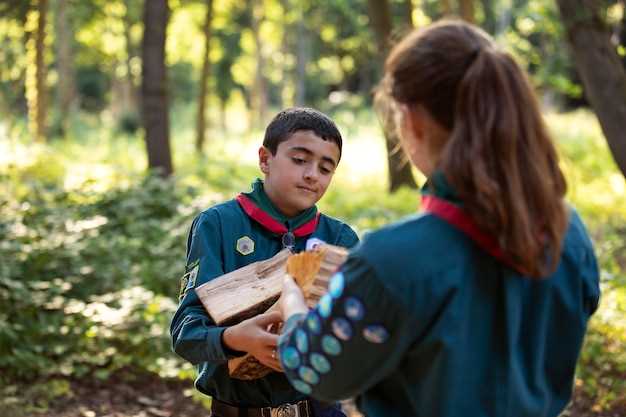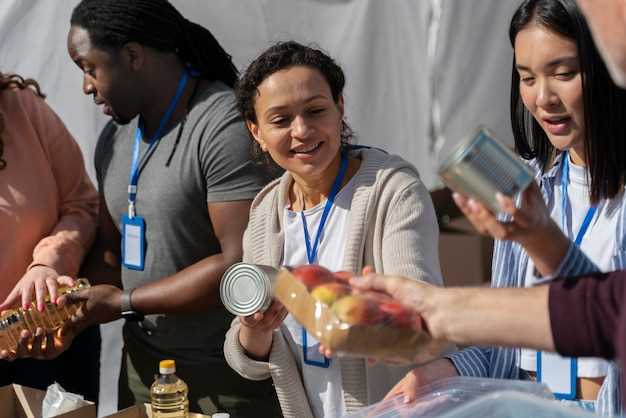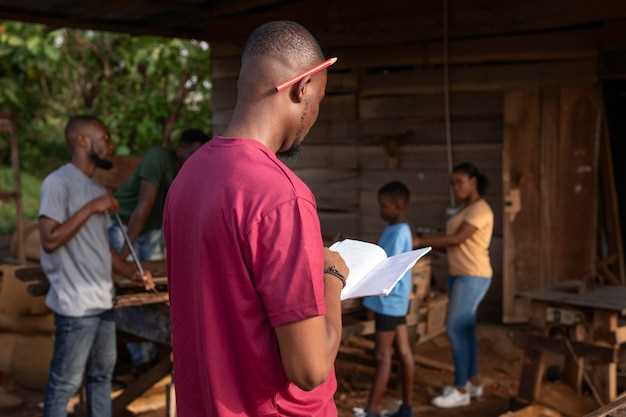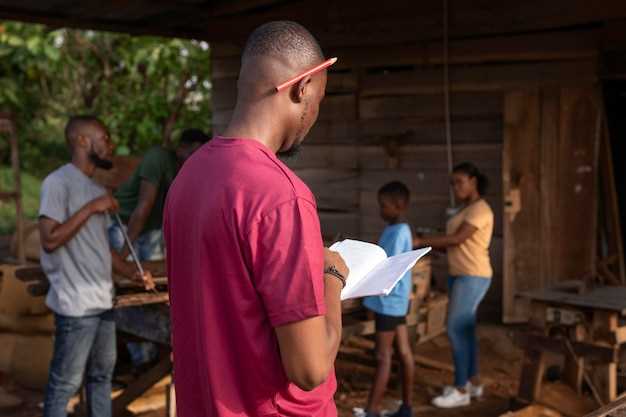In the academic landscape, the pursuit of knowledge often calls for substantial financial backing. Numerous scholars face barriers that hinder their journey toward innovation and discovery. This is particularly evident among those who embody unique cultural narratives and perspectives. Achieving equitable access to resources is vital. It fosters an environment where diverse voices can flourish and contribute to the broader discourse.
The quest for funding can feel overwhelming. Many institutions and organizations prioritize initiatives aimed at uplifting marginalized communities. However, finding the right avenues to secure these resources remains a challenge for many. Financial assistance can take various forms, including fellowships, scholarships, and project grants. These avenues serve as lifelines, facilitating the advancement of critical knowledge.
Moreover, navigating the landscape of available resources is crucial. Scholars need tailored support to ensure their projects align with their cultural and academic missions. It’s not just about financial aid; it’s about building a network of support that understands the intricate dynamics at play. Such structures can amplify the impact of their work and heritage.
As we explore potential avenues for financial sustenance, it’s essential to recognize the diversity of funding sources. Nonprofits, government programs, and private foundations often have different criteria and objectives. Each source offers unique advantages and challenges. Understanding these complexities can empower candidates to make informed choices that align with their goals.
With the right tools and strategies, scholars can focus more on their academic pursuits rather than on the intricacies of financial acquisition. In a world where voices from various backgrounds enrich academic discourse, paving the way for a more inclusive future is paramount. The journey may be difficult, but the rewards of unlocking this potential are invaluable.
Supporting Indigenous Research: Essential Funding Opportunities

Many communities possess unique knowledge that deserves recognition and support. This recognition can take the form of various types of financial assistance aimed at facilitating various academic endeavors. Researchers often seek avenues to bring their projects to life. These avenues are crucial for fostering innovation and cultural preservation.
Throughout the years, several organizations and institutions have dedicated resources to empower such initiatives. Access to appropriate financial support can genuinely transform the trajectory of a research project. As scholars navigate complex landscapes, having reliable funding can mean the difference between success and stagnation.
Different programs cater to diverse needs, from small community initiatives to larger projects involving extensive collaboration. The breadth of these options can sometimes be overwhelming, yet it is essential to identify those that align specifically with the goals of the endeavor.
| Funding Source | Description | Eligibility |
|---|---|---|
| The National Institute of Health | Offers financial support for health-related projects that respect traditional practices. | Open to researchers affiliated with recognized educational institutions. |
| The Mellon Foundation | Focuses on cultural preservation and academic scholarships in the arts and humanities. | Eligibility extends to individuals and collective entities. |
| The Native American Heritage Fund | This foundation prioritizes projects nurturing cultural heritage and language. | Designed for community leaders and local organizations. |
| McKnight Foundation | Supports initiatives that advance educational equity and community development. | Applications welcome from nonprofit organizations and community-based groups. |
| Sparkplug Foundation | Aims to fund grassroots projects that drive social change and cultural revitalization. | Encourages applications from small, grassroots movements. |
Selecting the right channel to acquire this assistance is paramount. Scholars might need to invest time researching available options before embarking on their projects. However, with the proper resources, the impact can resonate within their communities for generations. This commitment to cultural scholarship ensures that valuable traditions continue to thrive in an ever-evolving world.
Types of Funding Available for Indigenous Scholars

Numerous avenues exist to secure financial resources tailored for scholars from First Nations. Diverse programs cater to various academic pursuits. These financial awards can significantly contribute to educational development and professional growth. Each initiative typically has its unique criteria and scope.
Some provide direct monetary support for tuition and fees. Others might focus on specific projects or community engagement initiatives. Various entities, including government bodies and private foundations, play a vital role in this landscape. These organizations often aim to empower individuals through scholarships that consider cultural relevance.
Additionally, competitive fellowships offer excellent opportunities for those pursuing advanced studies. These fellowships often include mentorship and networking possibilities, enriching the overall experience. Some funds prioritize initiatives that emphasize cultural preservation or health equity, further aligning support with community values. Moreover, certain awards uniquely focus on interdisciplinary projects that bridge traditional knowledge with contemporary practices.
Ultimately, understanding the landscape of available monetary assistance is crucial for aspiring leaders to navigate their academic journey successfully. With dedication and passion, individuals can explore these paths, ensuring their work has meaningful impacts on their communities and beyond.
Government Grants for Indigenous Projects
Various funding mechanisms exist to assist communities and initiatives that focus on traditional practices, cultural revitalization, and community development. These financial resources are crucial for promoting the rich heritage and ongoing contributions of native populations. Different governmental bodies offer programs designed to enhance projects that strengthen cultural ties and improve local infrastructure. Availability of these funds opens doors to a variety of community-led initiatives.
Recognizing the significance of cultural identity is essential. Many program areas aim to support educational advancements, health initiatives, and environmental preservation. Moreover, these financial avenues encourage collaborations between local groups and governmental agencies, fostering unity and mutual understanding.
- Community development initiatives.
- Cultural restoration projects.
- Environmental sustainability efforts.
- Health and wellness programs.
Each program has specific eligibility criteria and application procedures, often requiring detailed project proposals that outline objectives, expected outcomes, and community involvement. It’s vital to prepare comprehensive submissions to increase the likelihood of receiving support. Being familiar with the requirements can significantly enhance an applicant’s chances of success.
Several entities, including federal and state governments, provide these financial resources. National agencies such as the National Endowment for the Arts and various Departments of Health and Education frequently release calls for proposals. Furthermore, local governments can also present unique opportunities tailored to regional needs.
While navigating this landscape, it’s beneficial to connect with other organizations. They can share insights and experiences that help in understanding the application process. Engaging with the community allows for a more targeted approach in developing proposals that resonate with decision-makers.
In conclusion, exploring funding avenues can lead to impactful changes within communities. By tapping into available financial resources and adhering to application guidelines, individuals and organizations can initiate projects that pave the way for meaningful growth and cultural appreciation.
Nonprofit Organizations and Their Support
Nonprofit entities play a pivotal role in fostering diverse projects. They often provide valuable resources, mentorship, and connections. These organizations are dedicated to uplifting various communities. Their influence extends beyond mere funding; they cultivate a supportive environment.
Many nonprofits prioritize the historical and cultural narratives that need preservation. They create platforms for voices that might otherwise remain unheard. Additionally, they work alongside local communities to ensure that initiatives align with their unique values and needs.
Inclusion is a core principle driving numerous nonprofits. This commitment translates into financial assistance, educational workshops, and networking opportunities tailored specifically to enhance capabilities and promote growth. By forming partnerships with various stakeholders, these organizations enable a collaborative atmosphere where innovative ideas can flourish.
Moreover, numerous nonprofits actively engage in advocacy. They raise awareness about the significance of cultural heritage and traditional practices, thereby enhancing understanding within broader society. Their efforts encourage dialogue and respect, ultimately leading to more informed policies that benefit all involved parties.
It is essential to explore the vast array of available resources through these entities, which can act as a cornerstone for aspiring individuals. Many of these organizations offer tailored programs designed to foster unique talents and capabilities, ensuring that every contribution holds significance in a larger context. Whether through workshops, funding, or community initiatives, the impact of nonprofits is profound and far-reaching.
Institutional Funding and Academic Partnerships
Collaborations between institutions and academia can unlock new horizons. They foster innovative ideas and create pathways for scholars. This synergy strengthens the academic community. Engaging with various organizations can enhance project scope.
Such partnerships often lead to shared resources and expertise. Working together can elevate the quality of initiatives. They also provide vital support in different forms. Connections with institutions can attract vital attention and investment.
- Establish clear goals for collaboration.
- Identify potential institutional partners aligned with your vision.
- Leverage existing networks to foster relationships.
- Seek advice from those with experience in collaborative projects.
By combining strengths, institutions and scholars can drive transformative change in their fields of expertise, allowing for groundbreaking initiatives that may otherwise remain unachievable without such cooperative efforts. Academic partnerships also create unique spaces for knowledge exchange, encourage diversity of thought, and lead to deeper understanding of complex issues.
- Consider interdisciplinary approaches to enhance project impact.
- Be open to feedback and adaptive strategies.
- Map out potential outcomes for all stakeholders involved.
- Maintain communication to ensure alignment throughout the partnership.
Ultimately, these alliances can bridge gaps and encourage meaningful progress, cultivating an environment where innovative solutions can flourish and the voices of a diverse community are amplified effectively.
Community-Based Research Funding Mechanisms
Engaging with local communities opens doors for innovative projects. Various mechanisms allow collaborative initiatives to flourish. Such approaches empower groups to address their own needs. They promote knowledge sharing and capacity building.
- Community Foundations
- Social Venture Capital
- Crowdfunding Platforms
- Private Philanthropy
These channels provide vital support while encouraging shared ownership of outcomes. Community foundations often focus on local issues, bringing together diverse stakeholders. Social venture capital blends financial returns with social impact, appealing to socially responsible investors. Crowdfunding platforms enable grassroots participation, allowing individuals to contribute small amounts. Private philanthropy frequently plays a crucial role, offering flexibility in project design.
- Establish Clear Objectives: Define the goals you want to achieve with your project.
- Engage Stakeholders: Involve community members in the planning process to ensure their voices are heard.
- Utilize Local Resources: Leverage existing skills and knowledge within the community for project implementation.
- Evaluate Outcomes: Regularly assess the impacts to adapt and improve future initiatives.
Funding routes such as these not only finance initiatives but also foster long-term relationships. By building connections, communities can mobilize additional resources while reinforcing their own capacities. Collaborative efforts give rise to unique solutions tailored to specific challenges, enriching both the participants and the wider society.
Strategies for Securing Research Grants

Gaining financial support for academic projects requires a thoughtful approach. Identifying suitable funding sources is only the beginning. Crafting a compelling proposal is equally crucial. Understanding the reviewers’ perspective can provide an edge. Each application is a chance to tell your story.
Begin by thoroughly researching potential foundations and organizations. Seek those that align with your mission and goals. Tailor your proposal to meet their specific criteria. Highlight the significance of your work. Strongly articulate the impact it aims to achieve.
Connect with experienced mentors. They can provide invaluable insights into the application process. Building a collaborative network also enhances your chances. Engaging with peers fosters a supportive environment. Their feedback can refine your ideas greatly.
Consider incorporating community perspectives in your work. This adds depth and relevance to your proposals, demonstrating a commitment to inclusivity and engagement. Reviewers appreciate when projects honor diverse voices, reflecting a broader understanding of the subject matter.
Prioritize clear communication in your writing. Clear objectives and methodology enhance comprehension. Use visuals to convey complex information effectively. An organized presentation makes a significant difference. Remember, clarity breeds confidence in your work.
Lastly, practice persistence. Rejection is a part of this process. Each submission offers a learning opportunity. Adjust your approach based on feedback received. Keep refining your strategy, and you’ll increase your likelihood of success.
Crafting a Competitive Grant Proposal
Creating a compelling proposal requires careful planning and attention to detail. Each component plays a vital role. Your work must resonate with the audience. Clarity and initiative are paramount. A strong narrative helps convey your passion.
Begin by understanding the requirements of the funding entity. Craft your objectives with precision and ensure they align with the entity’s mission. A well-structured approach not only displays professionalism but also showcases your commitment.
Engagement is key throughout the process. Build partnerships where possible; collaboration can strengthen your application. Be prepared to articulate how your pursuits contribute to broader goals. This potential impact must be clear from the outset.
| Key Elements | Description |
|---|---|
| Executive Summary | A concise overview of your proposal’s main points. |
| Objectives | Clearly defined goals and outcomes you aim to achieve. |
| Methodology | Detailed plans on how you intend to accomplish your objectives. |
| Budget | Itemized costs and justification for each expense incurred. |
| Timeline | Projected schedule outlining key milestones and deliverables. |
Feedback can significantly enhance your proposal’s quality. Seek insights from peers before submission. They might highlight areas needing clarity or improvement. Adapting their suggestions can strengthen your case considerably.
Finally, remember that a successful proposal tells a compelling story. It connects with the reader on an emotional level, illustrating not only the need but also your passion for the work. In this way, your application transforms from a mere document to a visionary narrative.
Building Collaborative Networks
Creating strong connections between different communities is vital. Establishing relationships enriches the exchange of ideas. Collaboration leads to shared success and mutual benefits. Networking fosters innovation and creativity, allowing diverse perspectives to emerge. It enhances the ability to tackle complex challenges together.
To build these networks effectively, one must prioritize genuine engagement. Listening actively and valuing each voice promotes trust. Collaborative events, workshops, and forums can serve as important platforms. By bringing together various stakeholders, ideas flourish while barriers diminish.
Strategically leveraging technology can also enhance connectivity. Online platforms enable widespread collaboration, breaking geographical constraints. Utilizing social media and digital communication tools fosters real-time dialogue. As participants share resources and knowledge, a vibrant community begins to form.
Establishing these meaningful partnerships cultivates a sense of belonging and purpose. With time, networks of collaboration evolve into powerful support systems. They not only advance shared interests but also celebrate unique cultural narratives. In such environments, innovative solutions emerge, ultimately enriching the entire community.
Understanding the Application Process
The journey of applying for financial assistance can be both exciting and daunting. Each program has its own set of criteria and requirements. It’s crucial to know what to expect along the way. The process often includes several steps, and preparation is key to success. Understanding the nuances can greatly enhance your chances of receiving support.
Firstly, gathering all necessary documents is essential. Applications usually require detailed proposals and personal statements. It’s important to clearly outline your goals and intentions in your work. Make sure to address any specific questions posed by the funding body as well. Tailoring your submission to meet their guidelines can make a significant difference.
Keep track of deadlines. Missing a date could mean the loss of an opportunity. Most programs are competitive. Hence, putting your best foot forward is vital. Thoroughly proofreading your application before submission is also recommended to avoid careless mistakes.
Engaging with mentors or advisors can prove invaluable during this time. Seek feedback on your proposal or ideas and be open to suggestions. They can provide insights that you may have overlooked. Building relationships with individuals who have been through the process can also ease the journey.
Finally, patience is essential after submitting your application. The waiting period can be nerve-wracking, but it is a normal part of the process. Keep in mind that many factors influence the decision-making timeline. If the response is positive, that can lead to great opportunities. However, if the outcome isn’t favorable, view it as a learning experience for future endeavors.
Video:
Types of Research Grants | Unlocking Funding Opportunities: Your Guide to Research Grants
Types of Research Grants | Unlocking Funding Opportunities: Your Guide to Research Grants by Vidy Potdar 186 views Streamed 9 months ago 23 minutes
Q&A:
What are the main funding opportunities available specifically for Indigenous scholars conducting research?
There are several funding opportunities specifically tailored for Indigenous scholars. Key sources include government grants such as the Indigenous Knowledge and Research Fund, which supports research that advances Indigenous knowledge systems. Additionally, many universities offer scholarships and grants that prioritize Indigenous researchers, such as the Indigenous Graduate Research Scholarships. Non-profit organizations, such as the Native American Rights Fund, also provide grants for projects that focus on Indigenous issues and are conducted by Indigenous scholars. Finally, various private foundations, like the First Nations Development Institute, offer specialized funding for research initiatives aimed at benefiting Indigenous communities.
How can Indigenous scholars effectively write grant proposals to secure funding for their research?
To effectively write grant proposals, Indigenous scholars should start by thoroughly understanding the funding agency’s priorities and guidelines. Tailoring the proposal to reflect these priorities is crucial. It’s beneficial to articulate the significance of the research to Indigenous communities and how it aligns with cultural values and needs. Including clear, measurable outcomes and demonstrating community engagement can strengthen the proposal. Collaborating with experienced grant writers or seeking feedback from peers and mentors in the field can also enhance the quality of the proposal. Lastly, emphasizing the potential for positive impact and sustainability of the research can further bolster funding chances.
Are there specific organizations that provide mentorship or support for Indigenous researchers seeking funding?
Yes, several organizations offer mentorship and support for Indigenous researchers. For instance, the American Indian Science and Engineering Society (AISES) provides resources, networking opportunities, and mentorship for Indigenous scholars in various fields, including the sciences. The Indigenous Research Network is another organization that offers support in grant writing and navigating funding opportunities. Additionally, local universities often have Indigenous student support centers that provide guidance and mentoring programs aimed at helping Indigenous graduate students and researchers connect with funding resources.
What role does community involvement play in securing funding for Indigenous research projects?
Community involvement plays a critical role in securing funding for Indigenous research projects. Many funding organizations prioritize research that is not only conducted by Indigenous scholars but also benefits Indigenous communities directly. Engaging with the community ensures the research addresses real needs and respects cultural contexts. Moreover, involving community members in the research process can help establish trust and demonstrate the project’s significance. Grant proposals that clearly articulate community partnerships, outline engagement strategies, and showcase community-driven outcomes are often viewed more favorably by funders.
What challenges do Indigenous researchers face in accessing grants and funding opportunities?
Indigenous researchers often face several challenges in accessing grants and funding opportunities. One significant issue is the lack of representation and understanding of Indigenous perspectives within funding agencies, which can lead to misalignment with project goals or cultural practices. Additionally, there may be systemic barriers, such as a limited understanding of grant writing and application processes within Indigenous communities due to historical disenfranchisement from academic and funding systems. Geographic isolation can also hinder access to resources and networking opportunities. Finally, the competitive nature of available grants means that many potentially impactful projects may go unfunded, especially if they lack the necessary support or mentorship to navigate the complexities of grant applications.
What types of grants and funding opportunities are specifically designed for Indigenous scholars?
There are a variety of grants and funding opportunities tailored to support Indigenous scholars. These can include government-funded programs, private foundations, and academic institutions that prioritize Indigenous research. Some notable examples include the National Science Foundation’s programs for Indigenous researchers in STEM fields, the Indigenous Research Capacity and Partnerships Program in Canada, and various fellowships offered by organizations like the American Indian College Fund. Many of these opportunities not only provide financial support but also mentorship and resources tailored to the unique needs of Indigenous scholars, encouraging the growth of Indigenous knowledge and perspectives within academia.
